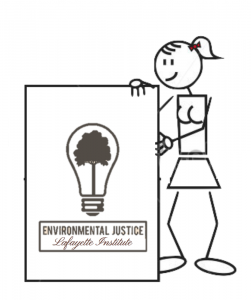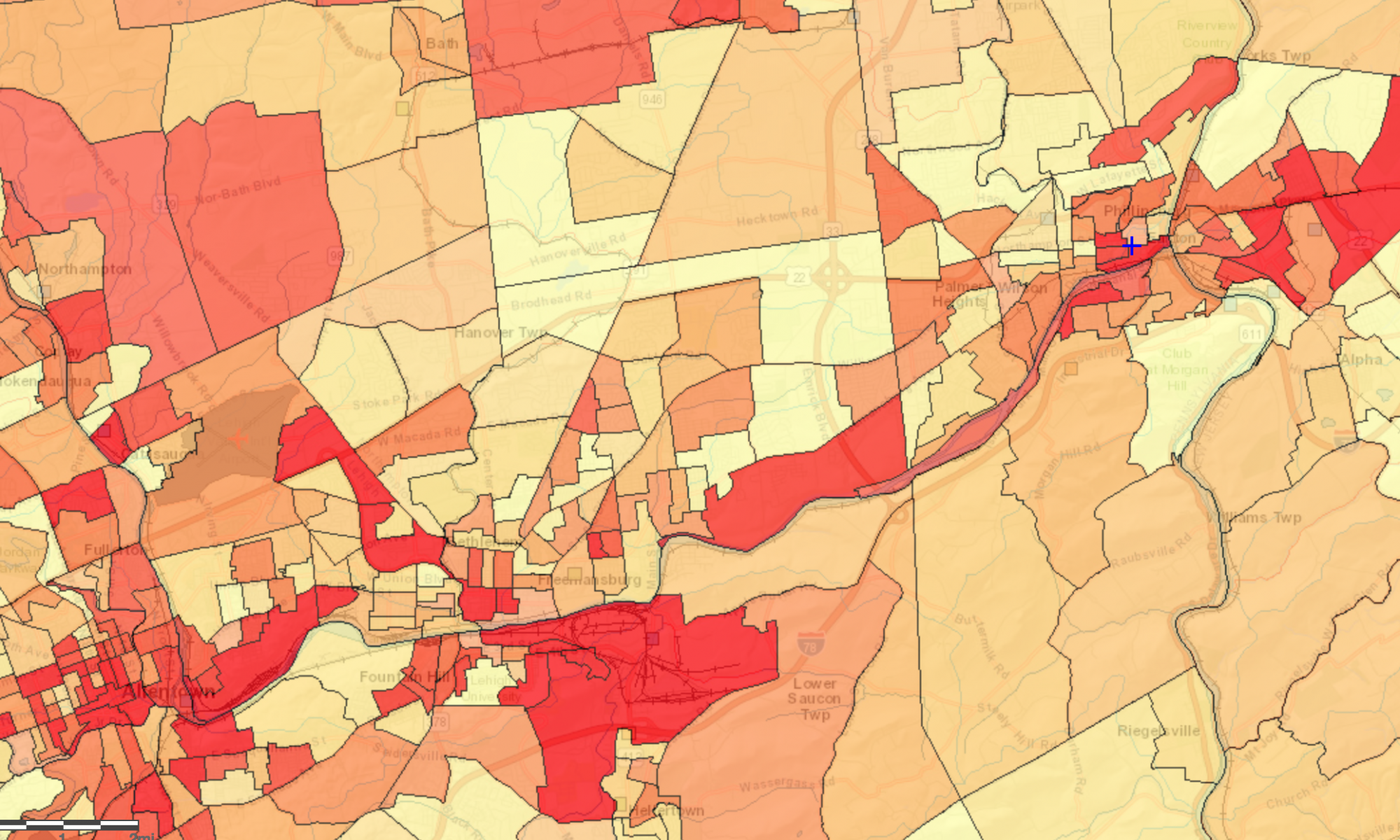With constructive action the Lehigh Valley can best prepare for the turmoils of climate change, and ensure that the most vulnerable and disadvantaged communities do not bear an unequal amount of the burdens. This is difficult to do when faced with environmental impacts as widespread as those of climate change. One way to ensure that Lehigh Valley residents are best prepared is to focus on building strength in communities. A tight knit community, or lack thereof, can make a critical difference when residents are faced with crisis. To address climate justice in the Lehigh Valley we would hope to improve relationships and dialogue through community building.

In July of 1995 a massive heat wave hit Chicago, affecting many residents. A natural experiment arose when two different communities that were right next to each other experienced the same conditions. One community was a tight-knit community that knew each other very well, so they were able to look after each other. The other community was not as close, so there were higher death rates. It becomes clear through this natural experiment that the action of relationship building in a community can help reduce the effects of events like climate change.
Applying this community method in the Lehigh Valley creates many exciting new opportunities for engagement. A climate justice focused project could foster increased dialogue and collaboration between the residents of the Lehigh Valley, particularly the undereducated and impoverished, and local academics and organizations, such as the Nurture Nature Center. Stronger relationships amongst residents, and other community members such as local government and organizations, will ensure just and appropriate reactions to environmental crisis. Collaborating and sharing resources equitably will help more vulnerable sets of the population rebuild. Fostering the community in the Lehigh Valley is a significant step in addressing the issues of recognitional justice, and increasing the respect for and meaningful participation of the most vulnerable residents.
Keep asking questions!
The fight against climate justice in the Lehigh Valley is just beginning! As mentioned above the multitude of colleges and universities in the valley can place a significant part in combating this pervasive injustice. Lafayette College students from across the disciplines could pursue excel or other research in a variety of areas to develop the local climate justice discussions and solutions.
Research questions may include, but are not limited to:
- How can we improve education rates within the Lehigh Valley to better equip communities to face the coming changes?
- What are some actions Lafayette can take to help reduce our carbon footprint?
- What are some successful mechanisms, here or from other communities, to engage disenfranchised members of the impacted areas and build community?
- What are the economic costs of climate change impacts and damages? Can a cost/benefit analysis of allocating resources to prepare for climate change vs. using resources to rebuild and repair be done?
- Can natural science research be used to predict the future of climate change impacts locally?


